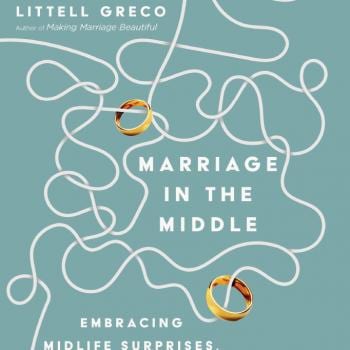Becoming Agents of Healing
To move toward healing, trauma survivors need to feel both safe and autonomous. According to trauma expert Dr. Judith Herman, “the length of time required for recovery [is] related to the quality of the person’s intimate relationships.” Meaning, healing cannot happen in isolation. We need supportive spouses and friends—as well a skilled therapist. When we feel seen, heard, and loved, we begin to find freedom from the effects of trauma.
Because God created us to be in relationship with others (see Genesis 2:18–25), our natural inclination is to reach out after we’ve been traumatized or if we feel unsafe. However, during the pandemic, others can be seen as dangerous. Our normal social networks—like church and sharing meals with friends—have been curtailed or interrupted. We might even feel some form of disruption within the walls of our home. For the first six weeks of the pandemic, my husband and I abstained from kissing and having sex. Between my auto-immune issues and our recent travel on the west coast, we felt our decision held merit. But we definitely felt disconnected.
Though the events around us might be out of our control, we are not powerless. We have agency in how we respond and how we support each other. The following suggestions should help.
- Listen to your body. Headaches, back pain, insomnia, and the urge to self-medicate (over-eating or over-drinking) might be the body’s way of signaling that a present tense situation is triggering past memories.
- Reach out for professional help. There are currently many modalities being used by trained trauma therapists. (If you are a churchgoer, talking with a pastor might be a source of support but they are not typically trained in this area.)
- If you are married to someone who has a trauma background, prioritize listening and validating their experiences without minimizing or trying to fix them. Let them tell their story when they are ready but confirm that you are eager to listen.
- Move toward empathy. Empathy is the ability to feel what someone else is feeling. If your spouse is suffering, suffer with them. One way to think about this is having emotional resonance—tuning into our spouse’s feelings and emotional needs. True empathy steers clear of criticism and judgment.
- Regularly pray for each other about these issues. Steady, consistent prayer has the power to move mountains—even if that movement is slow (Matt. 17:20)
If there’s a blessing in disguise during this season, perhaps it’s that as the current events trigger our past wounds, it presents us with an invitation to find more healing. That will happen as we choose to faithfully endure through every circumstance. Together.
Suggested Reading:
Trauma and Recover, Dr. Judith Herman
The Body Keeps Score, Dr. Bessel van der Kolk
Try Softer, Aundi Kolber
 About the Author:
About the Author:
Dorothy Littell Greco is a writer, speaker, marriage coach, and professional photographer who lives outside Boston, MA. The author of Making Marriage Beautiful and the forthcoming Marriage in the Middle, Dorothy and her husband Christopher lead marriage workshops and retreats, speak at conferences nationwide, and have been helping couples create and sustain healthy marriages for more than twenty-five years.
Dorothy has written for Christianity Today, Relevant Magazine, Missio Alliance, MOPS, Propel Women, Christians for Biblical Equality, The Perennial Gen, Biola Center for Marriage and Family, and many other publications. She is a member of Redbud Writers Guild and The Pelican Project.
When she’s not working, Dorothy loves to discuss theology, go for long walks and slow kayaks with Christopher, and share meals with friends. You can connect with Dorothy and find more of her work on her website or by following her on social media: Instagram. Facebook, Twitter.












